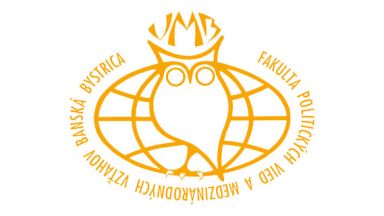Politický aktivizmus blízkovýchodných kresťanov v diaspóre voči krajinám ich pôvodu
MIDDLE EASTERN CHRISTIANS IN DIASPORA AND THEIR POLITICAL ACTIVISM TOWARDS THEIR COUNTRIES OF ORIGIN
Artur Boháč
***
Politické vedy, Volume 22, Number 4/2019, pages 57-80
DOI: http://doi.org/10.24040/politickevedy.2019.22.4.57-80
Recommended form for quotation of the article / Odporúčaná forma citácie článku:
BOHÁČ, A. 2019. Middle Eastern Christians in Diaspora and their Political Activism towards Their Countries of Origin. In Politické vedy. [online]. Vol. 22, No. 4, 2019. ISSN 1335–2741, pp. 57-80. Available at: http://doi.org/10.24040/politickevedy.2019.22.4.57-80
ABSTRACT
A contemporary globalized world brought intensive research of diasporas and their connections to their countries of origin to social sciences. These two-way connections are economic, cultural and political. This text was focused onpolitical activities. Transmigrants can be politically active or passive towards their homelands. Transmigrants are usually interested in the events in their homelands where their relatives still live. They benefit from modern technologies, and several authors speak about digital diasporas. These diasporas monitor persecution in their homelands. They establish organisations to boost their fundraising, inform the public and to lobby the governments, primarily in the West, and supranational institutions. Theemergence of Middle Eastern Christian diaspora is connected with armed conflicts, religious or ethnic discrimination in the Middle East in the last two centuries. The decline of Christians in the Middle East relates to their massive emigration to Western countries. This article attempted to gather theoretical information about diaspora activism, bring some innovative typologies, present the general attitudes of Middle Eastern Christian transmigrants towards their homelands and show specific strategies of the Assyrian and Coptic Middle Eastern Christian stateless diasporas. The emphasis was put on the comparative method. The author identified various tactics and group opinions among Coptic transmigrants, represented most visibly by laical modernist and church traditionalists, while the Assyrian transmigrants are politically more coherent in criticizing governmental structures. However, members of both groups think they do their best to improve the living conditions of their coreligionists in the turbulent Middle East.
Key words: Middle East, Christianity, diaspora, transnationalism, activism
Súbory na stiahnutie
| Názov | Veľkosť | Formát | Dátum | Zoradiť podľa: |
|---|---|---|---|---|
| Politický aktivizmus blízkovýchodných kresťanov v diaspóre voči krajinám ich pôvodu | Veľkosť: 449.5 kB | Formát: pdf | Dátum: 6.1.2024 |





